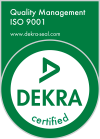The following article answers this question. It is the first text in a series of essays that will deal in loose succession with various aspects of the cooperation between Flying Study Nurses and sponsors/clinics.
They work flexibly and on a project-by-project basis; they can implement study projects from start to finish or help with select areas: As external service providers, Flying Study Nurses contribute significantly to the success of clinical study projects. They are often employed in cases where there is no clinical research department in a trial center (or not yet), or when the permanent on-site staff needs active assistance. Florian Schnabel, managing director of Invisio Clinical Studies Consulting, advises sponsors not to regard the additional use of Flying Study Nurses as a pure expense factor per se.
Time saved offers economic advantages
The work carried out by these trained study assistants brings with it economic advantages which quickly amortise the personnel costs incurred. Schnabel cites careful yet fast patient recruitment as one reason for this, as it also leads to fewer screening failures and more included study participants. In addition, the patients cared for by Flying Study Nurses are generally more reliable when it comes to sticking with studies. Florian Schnabel: “Our experience has shown that those involved feel more comfortable and satisfied with their personal care situation with a direct contact person.” The fact that study assistants also act as permanent contact persons for all other project participants and authorities facilitates communication and makes it more transparent.
The managing director of the Mannheim-based study service provider sees further positive aspects in the time savings and smoother project progress. Clinical studies supervised by Flying Study Nurses have often been able to reach important milestones ahead of schedule and were therefore usually completed more quickly. The audits also went according to plan. “By setting up a professional GCP / ICH infrastructure in trial centers, study assistants reduce the number of monitoring by CROs and there are fewer follow-up queries. Since the Flying Study Nurses are specifically trained in advance and work exactly according to protocol, their susceptibility to errors is also reduced,” says Schnabel, whose company supports sponsors as a partner in the search for Flying Study Nurses by arranging and coordinating their services.
Cooperation at an early stage recommended
The point at which Invisio enters a project depends on the respective request by the sponsor. For Florian Schnabel, the best time is before the project has even started – because the earlier Invisio is involved, the sooner the company can make its contribution. In doing so, he is alluding in particular to the collaborative selection of study centers. “We are closely networked with physicians internationally and, thanks to our many years of experience, we know which trial centers are reliable and have good past recruitment figures. When selecting the test centers, we draw on this wealth of knowledge and can thus estimate potential recruitment frequencies in advance,” Schnabel explains. In addition, Invisio cooperates with flying study nurses throughout Europe who are well acquainted with the local conditions and can assess which indicators can be fulfilled at which study centers. A second important point, in his view, is the early coordination of the Flying Study Nurses. This is because finding the right specialists and training them according to the protocol requires an average of one to two weeks’ advance notice.



